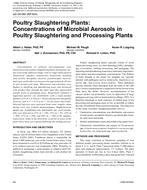During the winter heating season of 2005–2006 and the summer cooling season of 2006, a series of tests were conducted
to determine the impact of spectrally selective coated glass on energy consumption at a Canadian twin R-2000 house facility. Two low-emissivity coatings were compared on a whole-house basis: a high solar heat gain glazing and a low solar heat gain glazing technology. In addition to impact on energy consumption, differences in room temperatures, window surface temperatures, and the transmission of solar radiation were evaluated. Correlations between incident vertical solar radiation and consumption were developed and used to predict annual consumption and to compare the potential savings from the two technologies. This paper presents the results from these field tests and presents the methodology and the results from this analytical projection. A second upcoming paper will address the use of these results to refine computer simulation tools, and describes the energy analysis of these glazing systems for a range of North American climate zones.
Units: Dual
Citation: ASHRAE Transactions, vol. 114, pt. 2, Salt Lake City 2008
Product Details
- Published:
- 2008
- Number of Pages:
- 14
- File Size:
- 1 file , 6.2 MB
- Product Code(s):
- D-SL-08-021


